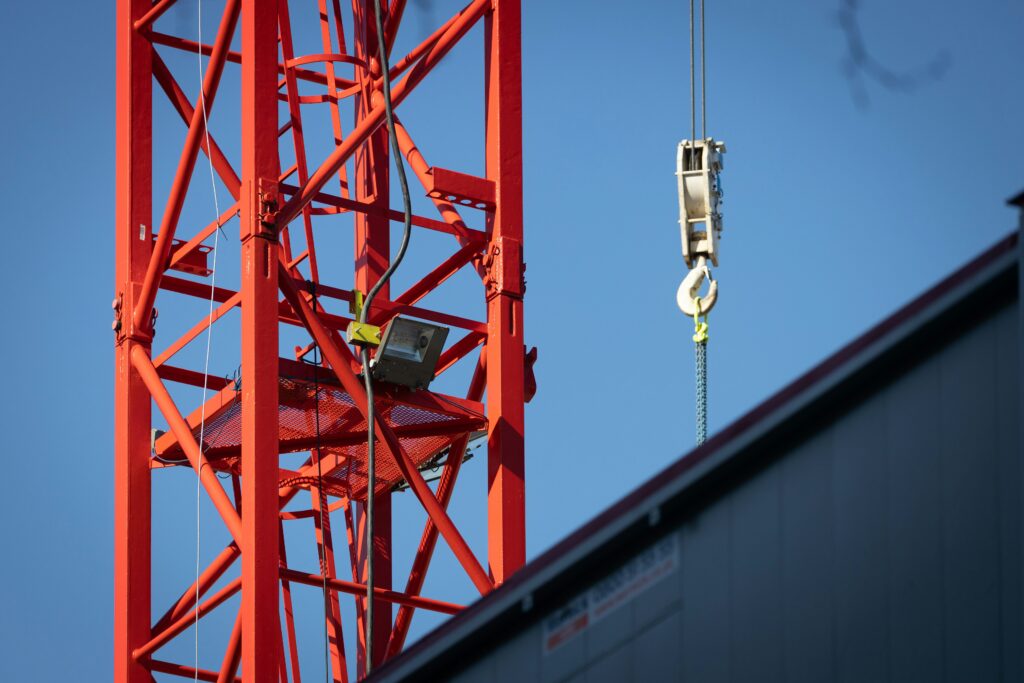Cryptocurrency ‘academy’ Amey Finance has been closed by the Insolvency Service, which claimed founder Desmond Amey used it to “recklessly persuade” people to partake in loss-making investment schemes, including an alleged $1.7 billion crypto “Ponzi”.
Communications to clients allegedly told one customer that their investments were a “100 certy” and to “trust me bro.” Another customer was apparently told that their investment wouldn’t fall below 90%; they ended up losing everything.
The jailing in March of US crypto king Sam Bankman-Fried, for 25 years, was music to the ears of detractors of digital currencies. But while many maintain there is a whiff of ‘Emperor’s new clothes’ about the whole thing, more investors have been sucked in than you might think. In the UK, it’s estimated that 6-7 million people – a tenth of the population – have dabbled in cryptocurrencies.
So what happens when crypto punters are, at best, sitting on theoretical losses they can afford to bear, or at worst, face personal bankruptcy because of their exposure? Having monitored for some time the yo-yoing of the major digital currencies, led by Bitcoin and Ethereum, HMRC is, unsurprisingly, up to speed with the tax treatment of crypto assets and liabilities. Nonetheless, risk remains for stricken holders hoping to mitigate their financial positions.
On the plus side, UK crypto investors can “bank” losses with HMRC to offset against future gains. Profitable disposals, as with other investments, attract capital gains tax at 20%. Sales at a loss, however, can offset future gains on other types of investments, such as shares or property. Losses need to be claimed within four years of the end of the tax year in which they were realised.
It is also possible to bank a ‘negligible value claim’ with HMRC when a crypto asset becomes worth ‘next to nothing’. No sale is needed and the window for carrying forward is indefinite. This rule also applies to ‘lost’ crypto assets, for example if a private key or password can’t be retrieved.
Fraud is different, however. Negligible value and capital losses are allowed if proof of holding at some point can be established; but not receiving crypto asset tokens that were paid for are unlikely to be seen as a disposal since the individual still owns the stolen asset and has a right to recover it.
Employees of crypto businesses, or external consultants to those enterprises, may yet face a major risk if they are paid in cryptocurrencies. In such cases, individuals are subject to income tax on the asset’s market value at the time of payment. A subsequently bombed-out valuation may not deliver enough cash to meet the income tax liability. If there is no way of meeting the bill, there is a good chance that HMRC will seek a bankruptcy order. Guidance from HMRC, including updates, is available here.
Hazards flashing, Cazoo hits the hard shoulder
Online car dealer Cazoo has finally been forced to slam on the brakes after its rapid expansion in recent years. The business intends to appoint administrators to its key group companies as it faces existential cash flow challenges. It’s an increasingly common tale: successive funding rounds, high valuations, expensive sports sponsorship and an appealing consumer offering that ultimately can’t buck the longstanding dynamics of its underlying market.
Cazoo has sold around 160,000 vehicles since 2019 to customers attracted by its hassle-free, doorstep delivery approach. However, the auto industry’s many moveable parts have been shaken up significantly in recent times, not least during the Covid pandemic. Shrinking stocks of used cars became a huge problem: reduced production of new vehicles during lockdowns worldwide was exacerbated by a global automotive chip shortage, which only ended last year. Cazoo reported a 29% drop in vehicles sold between 2022 and 2023, squeezing revenue by 44%.
Throw in a cost of living crisis, higher wages for employees, business rate increases and the soaring costs of leasing and operating large showrooms and customer centres, and suddenly the problems that many dealers face routinely are hugely amplified. The most important of these is the perennially wafer-thin margin available to the industry. Some small second hand cars are regularly sold at a loss, with the shortfall recouped on selling warranties. Those tempted to jump-start Cazoo at a knockdown price will have their work cut out: it’s a tough, finely balanced game that high volume e-commerce will struggle to revolutionise.

Beware a construction recovery built of straw
The construction sector, again no stranger to tiny margins, is never far from the top of the ‘new insolvencies’ table. The year to February saw a 5.7 per cent rise in contractors and builders hitting the buffers. Building activity has apparently begun a tentative recovery but it’s way too early to break out the bubbly.
On the plus side, the political goal of building 300,000 new homes remains a priority for both major political parties. Several trades within the broader sector, including civil contractors, roofers and fit-out companies stand to benefit. Set against this positive trend is the inescapable fact that many businesses will need a cash injection to be able to undertake large projects. Cashflow problems already caused by late payment or bad debts are set to continue in the foreseeable future. The ongoing labour shortage could add more woe: while some redundant workers from failed companies might get snapped up quickly elsewhere, huge numbers have left the sector, either returning home to Europe or simply retiring. The skills gap in plumbing, bricklaying and other areas will need to be plugged by higher wages, further reducing margins.
Interest rates cuts are unlikely to begin before August 2024, with mortgage rates easing (probably at a slower rate) accordingly. That could support a rise in demand for housing in 2025, but let’s not forget that many companies are still financially weak. Many will will need to trade out of the red before taking full advantage of a better environment; in some cases, businesses will overtrade. Credit insurers at Allianz believe that delayed projects, a lack of skilled labour, or a squeeze in worker supply could be the last straw for many. The transition from a low-demand to a growth environment poses a risk of increased trading shortfalls. So, possibly until the end of 2025, the construction sector remains poorly placed to absorb losses.

Wrongful trading
Recent cases of directors being sanctioned by the Insolvency Service remain dominated by the abuse of Bounce Back Loans obtained for businesses during the Covid pandemic. Beyond the BBL issue, the post-Covid (October 2022) Supreme Court ruling in BTI v. Sequana on directors’ fiduciary duties in a looming insolvency provides a further sobering reminder.
When a company is “insolvent or bordering on insolvency”, or an insolvent liquidation or administration is probable, the directors’ duty to act in good faith in the interests of the company should be understood as including the interests of its creditors as a whole (the creditor duty).
While a “real risk of insolvency” is not sufficient to trigger this duty – and in Sequana, the creditor duty was not engaged, because insolvency was not even probable at the relevant time – as a general principle, the greater the company’s financial difficulties, the more the directors should prioritise creditors’ interests. Where an insolvent liquidation or administration is inevitable, creditors’ interests become paramount as the shareholders cease to retain any valuable interest in the company.
In today’s difficult trading conditions, many companies will face issues with cash flow, higher costs of doing business, and lower demand. All of these, individually or together, are existential threats leaving a company only a step away from insolvency. The moment managers think their business might be facing ultimate collapse, expert advice must be urgently sought for the protection of the company, its creditors and directors.
The first tests are straightforward: balance sheet insolvency, where liabilities exceed assets; or cashflow insolvency, where liabilities, other debts and overheads cannot be met when they are due. Companies may fail one of both of these definitions. Directors have a legal duty not to take on additional credit or accept deposits for goods and services that are unlikely to be delivered. In other cases, the correct decision may be to cease trading immediately.
Unsurprisingly, the regulations around insolvency are complex. Where there is a possibility to trade while technically insolvent, the decision should be taken by a licensed Insolvency Practitioner formally engaged by the company, not by the directors themselves. ‘Wrongful trading’ may leave directors personally liable for company debts, with the additional risk of disqualification for two to fifteen years. “Fraudulent trading” moves the misery to the next level, adding a criminal element to civil action if a clear intention to defraud creditors is determined.
Government investigators and appointed Liquidators will pick apart a company’s financial record in the run-up to insolvency, so stricken directors – even the most optimistic – must pull their heads out of the sand before it’s too late: look for the warning signs in current trading; keep close tabs on the company’s financial position; avoid large transactions at questionable valuations; and, most important, seek early professional advice on insolvency.
As ever, the Buchler Phillips approach to business challenges is ‘workout, not bail out’. Don’t hesitate to get in touch for an exploratory chat if your business needs help. Addressing the cracks now will, in many cases, avoid the need to start again.
Our helplines below are open for free initial consultations.
Jo Milner 07990 816904
David Buchler 07836 777748
Let’s get to work!
About Buchler Phillips
Buchler Phillips is an independent, UK based corporate recovery and restructuring firm, with an impeccable Mayfair heritage dating back to the 1930s.
Led by David Buchler, former Europe and Africa chairman of global consultancy Kroll Inc, our senior team is equally comfortable advising large corporations, Small & Medium Enterprises (SMEs) or individuals. In addition to decades of experience, each of our Partners brings to any given assignment unique independent insight, free from conflicts of interest, that is often sought but rarely found by clients or co-advisors.
The firm is sector-agnostic, but has particularly strong credentials in property; financial services; professional services; leisure and hospitality; retail and consumer; UK sports; media and entertainment; transport and logistics; manufacturing and engineering; technology and telecoms
Our activities fall broadly, though by no means exclusively, into financial restructuring, including fraud and forensic investigations; operational restructuring and turnaround; expert witness services and recovery solutions for corporates and individuals.
This newsletter is published for the purposes of general information only and does not constitute advice. Any action taken by readers upon the information above is entirely at their own risk.
